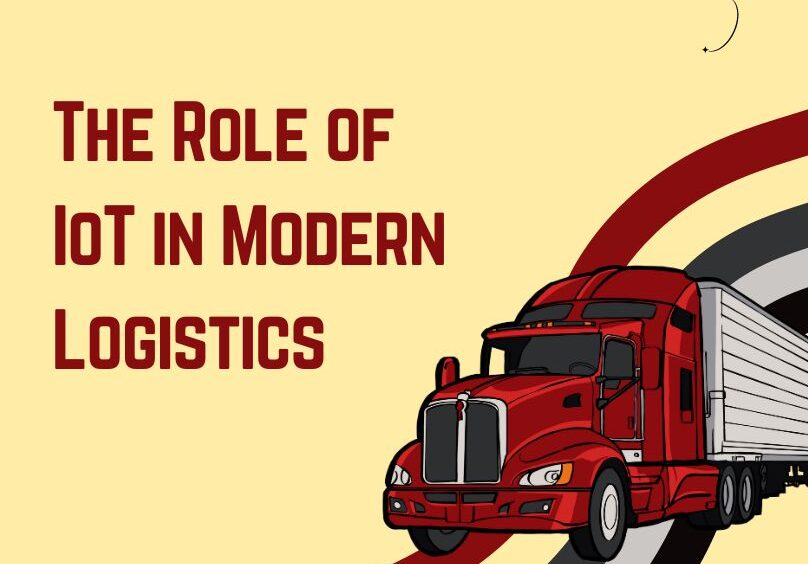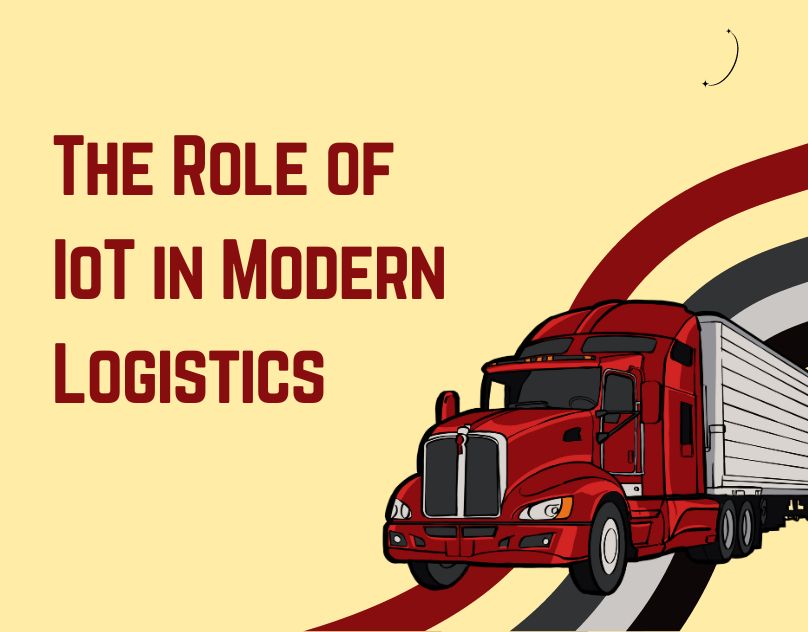The Role of IoT in Modern Logistics

Introduction to IoT in Logistics
The advent of the Internet of Things (IoT) has brought a transformative shift across various industries, and logistics is no exception. At its core, IoT refers to a network of interconnected devices that can communicate and exchange data with each other over the Internet. By integrating IoT and blockchain technology in supply chain logistics, companies are able to streamline operations, enhance visibility, and improve overall efficiency, which are critical components in today’s fast-paced and competitive market environment
Enhancing Operational Efficiency
Real-time Tracking
One of the most compelling advantages of IoT in logistics is real-time tracking. IoT devices such as GPS trackers and RFID tags allow companies to monitor the location and condition of their assets—whether they are in transit or stored in a warehouse. This significantly reduces the likelihood of lost or misplaced goods and ensures timely delivery to end-users. Customers also benefit from this visibility, as they can track their packages in real-time, improving customer satisfaction and trust.
Inventory Management
Efficient inventory management is indispensable for any logistics operation. IoT-enabled sensors can monitor stock levels in real time, providing invaluable data that helps companies forecast demand and manage supply more accurately. These sensors can detect when stock levels are low and automatically trigger reordering processes, helping businesses maintain optimal stock levels without overstocking or running out of inventory.
Improving Safety and Security
Asset Protection
The security of goods in transit is a major concern for logistics companies. IoT devices can offer enhanced security measures such as geofencing, which sends alerts if an asset deviates from its predefined route, and temperature sensors that ensure perishable goods are kept within required conditions. By continuously monitoring these variables, companies can quickly react to any issues that arise, thereby protecting their assets and reducing potential losses.
Workforce Safety
IoT can also play a pivotal role in enhancing the safety of logistics personnel. Wearable IoT devices can monitor the health and well-being of drivers and warehouse staff by tracking their vital signs and physical conditions. If there is a sudden health issue or if fatigue is detected, alerts can be sent to supervisors who can then take appropriate action. This proactive approach can significantly reduce workplace accidents and improve overall workforce safety.
Streamlining Supply Chain Management
Reducing Operational Costs
Implementing IoT in logistics can lead to substantial cost savings. By providing detailed insights into various operational aspects, IoT helps companies identify inefficiencies and implement corrective measures. For instance, IoT devices can monitor fuel consumption and vehicle performance, allowing logistics providers to optimize routes and reduce fuel costs. These cost savings can be further reallocated to other areas of the business, improving overall profitability.
Enhancing Supply Chain Transparency
Transparency in the supply chain is crucial for effective decision-making. IoT provides unparalleled visibility into the supply chain, enabling companies to monitor goods from when they are manufactured to when they reach the end consumer. This level of visibility is particularly useful in identifying bottlenecks and inefficiencies, which can then be addressed proactively. An educational resource such as the IBT Level 7 Diploma in Supply Chain Management provides in-depth information on how IoT and other modern technologies are reshaping supply chain dynamics, making it essential for professionals aiming to excel in this field.
The Role of Blockchain Technology
While IoT offers real-time data collection and monitoring capabilities, coupling it with blockchain technology takes things a step further by ensuring the data’s integrity and security. Blockchain creates a decentralized and immutable ledger of all transactions, which can be verified by all parties involved. This is particularly beneficial in the realm of logistics, where multiple stakeholders rely on accurate information for decision-making.
Ensuring Data Integrity
One of the primary benefits of using blockchain technology in the supply chain is the prevention of data tampering. Each transaction recorded on the blockchain is encrypted and can only be altered with the consensus of the network. This ensures that all data collected by IoT devices remains accurate and unaltered, providing a trustworthy source of information for all supply chain stakeholders.
Enhancing Collaboration and Trust
Blockchain can significantly improve collaboration between supply chain partners by providing a transparent and tamper-proof record of all transactions. This level of transparency fosters trust among partners, as they can be confident that the data they are relying on is accurate and trustworthy. For instance, a manufacturer can verify the authenticity of raw materials supplied by a vendor, while the end consumer can trace the product’s journey from production to delivery.
Case Studies and Applications
Fleet Management
Several logistics companies have successfully leveraged IoT and blockchain to optimize their fleet management. By equipping vehicles with IoT sensors, companies can continuously collect data on vehicle performance, driver behavior, and route efficiency. This data can be processed and analyzed to identify areas for improvement, such as reducing idle times or optimizing fuel consumption. Blockchain technology ensures that all data collected is secure and verifiable, enabling better decision-making and increased operational efficiency.
Cold Chain Logistics
The transport of perishable goods, also known as cold chain logistics, is another area where IoT and blockchain have made significant inroads. IoT temperature sensors can monitor the ambient conditions of goods in real time, ensuring that they remain within the required temperature range throughout transit. By recording this data on a blockchain, companies can provide an immutable proof that the goods were transported under optimal conditions, which is particularly important in the pharmaceutical and food industries.
Future Trends and Developments
Autonomous Vehicles
As technology continues to evolve, the future of IoT in logistics looks even more promising. Autonomous vehicles, powered by IoT and AI technologies, are set to revolutionize the logistics industry by reducing the need for human intervention and enabling round-the-clock operations. These self-driving vehicles can optimize routes in real-time, reducing delivery times and operational costs.
Drone Deliveries
Drones are another emerging technology that stands to benefit from IoT integration. By using IoT sensors and GPS trackers, drones can navigate complex environments and deliver goods to remote or hard-to-reach areas with high accuracy. Drones can also collect data on delivery times and conditions, which can be used to further optimize logistics operations.
Smart Warehouses
The concept of smart warehouses, where traditional storage facilities are transformed into highly automated and efficient hubs, is gaining traction. IoT devices can be used to monitor inventory levels, track the movement of goods, and optimize warehouse layouts. Augmented reality (AR) and AI technologies can further enhance these operations by providing real-time guidance to warehouse workers and automating routine tasks, thus reducing labor costs and increasing operational efficiency.
Conclusion
The integration of IoT in modern logistics has brought about a paradigm shift, offering numerous benefits ranging from enhanced operational efficiency to improved safety and transparency. As these technologies continue to evolve, their impact on the logistics industry will only grow, paving the way for more streamlined and efficient supply chains. By understanding and embracing these innovations, companies can stay ahead of the curve and build more resilient, agile, and competitive logistics operations.
Read another article ”From Stress to Success: How University Assignment Help Can Make a Difference”





